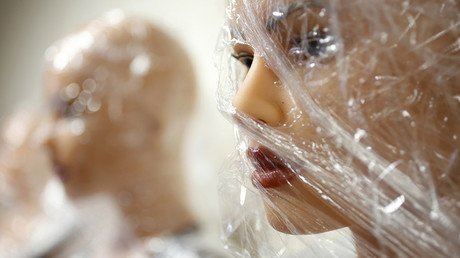‘Sexbots are coming’: Scientists say ‘digisexuals’ inevitable as more people bond with robots

Academics are arguing that many people will soon be identifying as “digisexuals” and taking their sexual identity from having sex with robots.
While sex robots are currently quite primitive, a new report published in the Journal of Sexual and Relationship Therapy argues that before long they will be able to look, speak and act like real people - and will be specifically designed to fulfill a person’s desires.
The report’s authors, Neil McArthur and Markie L. C. Twist, from the University of Manitoba, Canada, argue that we need to be ready to deal with the phenomenon when it comes to fruition.
“There is no question, then, that sexbots are coming,” McArthur and Twist say. “Our view is that they will represent a different sort of sexual experience from what existing technologies offer. First of all, people will form an intense connection with their robot companions.”
“These robots will be tailor-made to meet people's desires, and will do things that human partners cannot or will not do. For this reason, significant numbers of people will likely come to use robots as their primary mode of sexual experience.”
The pair, who also co-authored the book “Robot Sex: A Book for the Enlightened Sapiosexual,” argue that the rise of digisexuality will bring benefits, including potentially saving human relationships.
They also say that digisexuality will have a positive impact, particularly for people who experienced sexual trauma in the past or for those who have difficulty forming human relationships.
However they warn that it will also bring a slew of difficulties and argue that doctors must be prepared to deal with digisexuality and have a framework for how to approach it.
Noel Sharkey of the Foundation for Responsible Robotics (FRR) recently argued against sex robots being used by the elderly in care homes.
READ MORE: Sex robots could provide therapy and treat loneliness in care homes
“They are being proposed for the elderly in care homes, which I think is controversial. If you have severe Alzheimer’s you can’t really tell the difference. We need to think about as a society what we want to do about it,” the researcher said.
“It’s very sad because it’s going to be a one-way relationship,” he continued. "If people bond with robots it’s very worrying. You are loving an artifact that can’t love you back, and the best they can do is fake it.”













